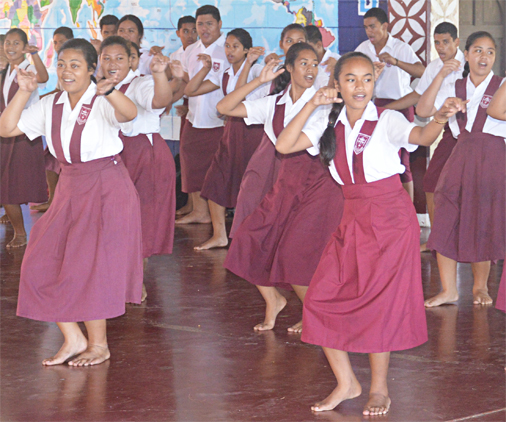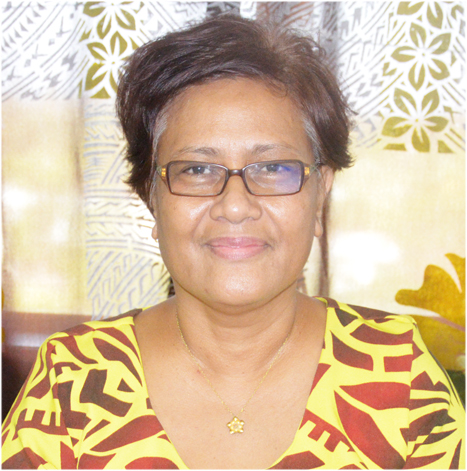By Staff Writer


Promises of Government forking out for salaries of teachers in non-Government schools, is stoking more fire into the longstanding hopes by the EFKS Director of Education.
Ms. Rosita Esera is in a struggle at the end of every year to cope with the steady loss of teachers from the EFKS schools for better pay offers in Government.
“Talk of Government paying our teachers salaries has been around for a while so I’m hoping this will finally happen,” the EFKS Education Director reacted to promising comments in Parliament recently.
Prime Minister Tuilaepa Sailele Malielegaoi told Parliament that Government is taking careful study on how to maintain the assistance once it starts.
“We want to make sure the assistance will not suddenly stop,” he said during the Supplementary Budget debate.
EFKS Education Director Esera agreed with the PM’s concerns for non-Government schools to afford good teachers, in order to maintain the high standard of learning for the children.
Salary increases for Government teachers have steadily drained away the teaching staff from non-Government schools in recent years.
Esera agree with the serious concern in church and private schools for the quality of children’s learning and are doing their best to cope.
“We do have professional training in our church school system but it is not enough for the development the teachers need,” Esera said.
Newer changes under the Teachers Act and the Teachers Council to lift standards and ethics across the profession are added issues Ms. Esera believes must be looked at as a related issue.
If all teachers in the profession are expected to be at the same professional standard then the issue of fairness comes in with Government teachers getting higher salaries than their non-Government colleagues.
‘But these are among several other issues that needs fine tuning, like the hiring of teachers if Government do go ahead with the salaries assistance.
“Who does that and according to what terms and conditions because the church schools may have their own to consider.”
Government is already making annual contributions to outside schools and the PM believed it is helping to keep many of them running.
PM Tuilaepa it is very important for Government to look ahead to the benefit of the whole country and not just to make a political party look good.
“But it needs to be studied carefully so that it won’t bankrupt the Government.”
Tuilaepa said it is important to look beyond at the longterm benefits for Samoa in the same way the National University of Samoa, NUS, was set up.
Member of the Council of Deputies, Le Mamea Ropati, was Minister of Education at the time when the NUS was established with a $5 budget.

“There was opposition at the time but the longterm vision was to set up the university as a higher learning institution for Samoa to fall back on.
“Whatever the troubles the University of the South Pacific is going through now, it is not a major worry for us with our own NUS in place.”
The PM recalled the first time Government decided to offer financial assistance to non-Government schools under the late Prime Minister Tofilau Eti Alesana.
“It was in 1983 when the Marist Brothers expressed disappointment at receiving virtually no assistance from Government yet the majority of the Members of Parliament were educated in Marist schools.”
Tuilaepa said that PM Tofilau agreed when assistance was suggested and the programme first started with $50,000 to schools.
“Now the assistance has grown into millions of tala ”
